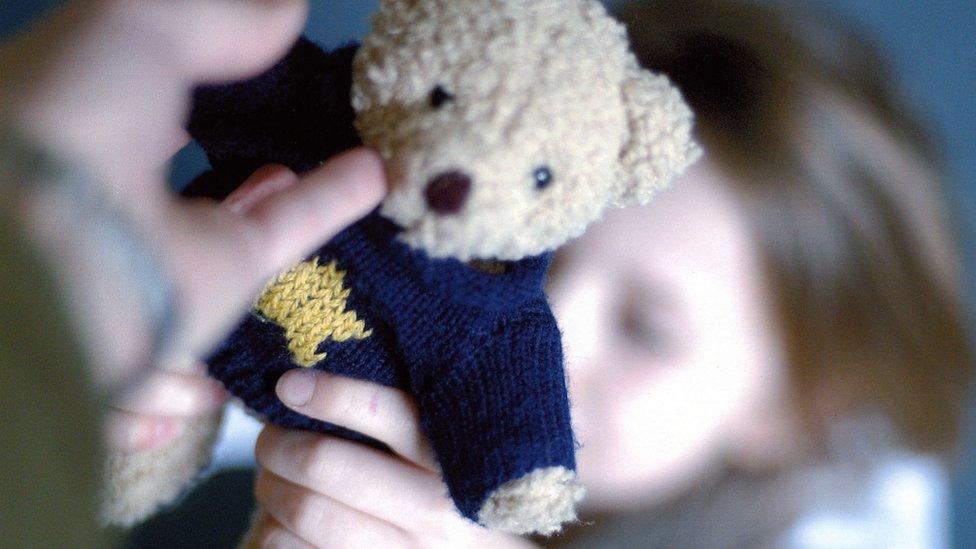Fostering: The rules and the reality
- Published

A judge has said there were no concerns about the welfare of a Christian girl said to have been fostered by a Muslim family, when she was assessed by an independent guardian.
The girl, aged five, was placed in the care of her grandmother on Wednesday.
The local authority involved, the London Borough of Tower Hamlets, had rejected a report in the Times newspaper that said the foster family did not speak English. It also disputed other details. Reporting restrictions are in place to protect the identity of the girl.
Reality Check has been looking at the rules around fostering children and what happens in practice.
An unusual case?
According to the fostering agency TACT (The Adolescent and Children's Trust), while Muslim families do occasionally foster non-Muslim children, it is less usual than for non-Muslim families to foster Muslim children.
There are no official statistics available on the religion of fostered children or their carers, but we do have some information about ethnicity.
Government figures show nine local authorities reported having no long-term foster carers from minority ethnic groups last year, but all reported placing minority ethnic children with their fostering service.
In 2015-16, 84% of long-term foster carers were white compared with about 77% of fostered children.
Foster carers can access training and are expected to demonstrate how they are meeting the legal standards of care. For example, someone caring for a vulnerable child will have to provide evidence that they understand the principle of "equality, inclusion and anti-discriminatory practice".
When a child needs to be accommodated in a foster placement, a council usually has less than 24 hours to find them a home, meaning there is often not a lot of choice between which approved foster carer they are placed with. There are other considerations, too, like making sure the child is near their school.
The rules
There are very few hard and fast rules dictating who can become a foster carer. Each individual applying to care for vulnerable children has to undergo a comprehensive assessment by a council or independent fostering agency.
This can take about 15-20 weeks, during which they will be expected to allow their home, lifestyle, current and past relationships to be scrutinised.
The basic criteria required by most fostering agencies and councils are:
carer to be at least 21 years old (even though the law only requires people to be 18)
have a spare bedroom big enough for a young person to live in
be a full-time resident in the UK or have leave to remain
have the time and ability to care for a child or young person
there is no specific rule about language but in reality foster carers are expected to have a good level of English. There is no compulsory test.
Age, marital status, ethnicity and sexuality will not exclude someone from being a foster carer. But some of these elements may be taken into account, depending on the individual circumstances - the primary consideration is what is best for the child.
So, for example, the charity The Fostering Network says a single person can foster but must demonstrate that they have an adequate support network. And a person's religion won't prevent them from fostering but they will need to demonstrate how they can support a child of a different religion from their own.
Cultural background
The principles are set out in law in the Children Act 1989, which says: "Foster carers and fostering services should ensure that full attention is paid to the individual child's gender, faith, ethnic origin, cultural and linguistic background, sexual orientation and any disability they might have" and foster carers must be "informed, trained and confident" at dealing with these issues.
This doesn't mean foster carers must necessarily be of the same ethnic or faith background as the children they care for, but they must be equipped to meet that child's cultural and religious needs.
Before 2014 there was a principle in adoption that children should be matched with families of the same ethnic background as their own where possible, but this requirement to give "due consideration" to things like race was removed because of concerns that it was preventing children from being placed with suitable families of different backgrounds.
There was no corresponding principle for fostering.


